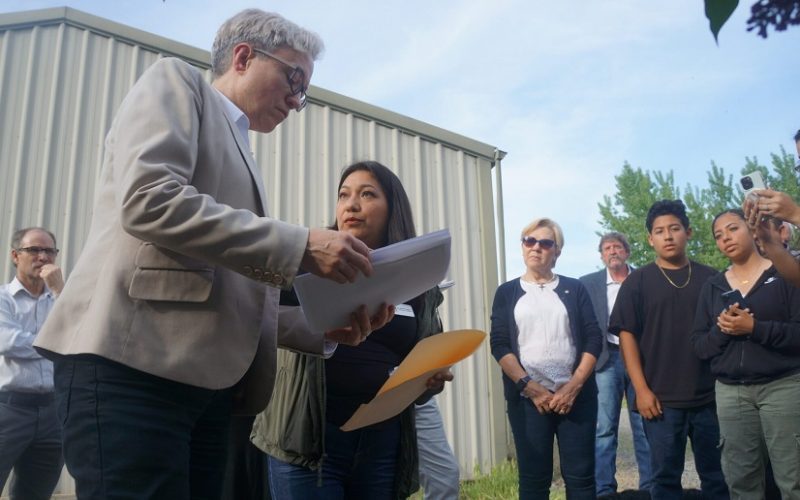Salem, OR – Oregon Governor Tina Kotek’s proposal to update the state’s groundwater protection laws faced intense scrutiny and opposition at its first public hearing this week. Senate Bill 1154, which seeks to give state agencies more authority to intervene in groundwater contamination issues before they reach critical levels, was the subject of heated debate during a meeting of the Senate Natural Resources and Wildfire Committee.
The bill, which aims to update the Groundwater Quality Protection Act of 1989, was designed to address the growing concerns surrounding contaminated groundwater, particularly from agricultural chemicals. It would allow state agencies to take earlier action in contaminated areas, implement more proactive measures, and establish clearer responsibilities for state agencies involved in remediation efforts.
Supporters of the bill argue that it is a long-overdue update to the existing law, which they claim is too vague and lacks the necessary authority to address contamination effectively. Chandra Ferrari, Governor Kotek’s natural resources advisor, told lawmakers that the current law is insufficient to prevent pollution from reaching critical contamination levels, which can be costly and dangerous for affected communities. According to Ferrari, 80% of Oregonians rely on groundwater for drinking, with one-quarter of rural Oregonians depending on private wells, often in areas affected by contamination.
“It’s risky, it’s costly, it’s time-consuming to not effectively address contamination,” Ferrari said. “We need to work harder to prevent critical contamination thresholds and be more strategic when intervention is necessary.”
However, the proposal quickly met significant opposition. More than 560 individuals and organizations submitted testimony against the bill, and several state representatives from eastern Oregon spoke out against it during the hearing. Critics argue that the bill would grant state agencies excessive authority, allowing them to monitor and test private property without landowner consent. State Reps. Bobby Levy (R-Echo) and Greg Smith (R-Heppner) both voiced concerns that the bill represents an overreach of state power.
Levy described the bill as an “unacceptable overreach” that would infringe upon the property rights of rural Oregonians. “It grants broad, unchecked authority to state agencies, allowing them to walk onto private property, dig up soil, and impose arbitrary restrictions,” Levy said, as applause broke out in support of her remarks.
The bill’s provisions include the creation of a new designation for “areas of concern,” where contamination has been detected but has not yet reached critical levels. The Oregon Environmental Quality Commission would have the authority to designate these areas, and a response team would be formed to help local stakeholders develop a “local voluntary implementation plan” to curb pollution. If these voluntary efforts fail, state agencies could step in to directly intervene, including conducting soil and water testing on private property.
Opponents worry that this level of state involvement could lead to the suspension of water use or increased regulation on agriculture, both of which could have severe economic and practical implications for rural communities that rely on well water for farming and daily life.
The bill also aims to clarify the roles of various state agencies in managing groundwater quality, including the Oregon Health Authority, the Oregon Water Resources Department, and the Oregon Department of Agriculture, which would focus on agricultural pollution.
While the proposal has garnered substantial support from environmental and public health groups, many feel the bill could be improved to address concerns over property rights and local control. Kaleb Lay, director of policy research at Oregon Rural Action, acknowledged that the bill is not perfect but emphasized the need for legislative action.
“If we leave the law unfixed, it will simply stay broken,” Lay said. “This bill represents a critical step forward in addressing Oregon’s long-standing groundwater contamination issues.”
As the bill moves forward, it will be reviewed by the Senate Rules Committee, which will hold additional public hearings in the coming weeks. Advocates hope that adjustments will be made to ensure broader support, while still addressing the urgent need to update the state’s groundwater protections.
The debate over Senate Bill 1154 highlights the ongoing tension between protecting public health and respecting property rights in Oregon’s rural communities. While the future of the bill remains uncertain, its implications for the state’s groundwater management will continue to be closely watched.











